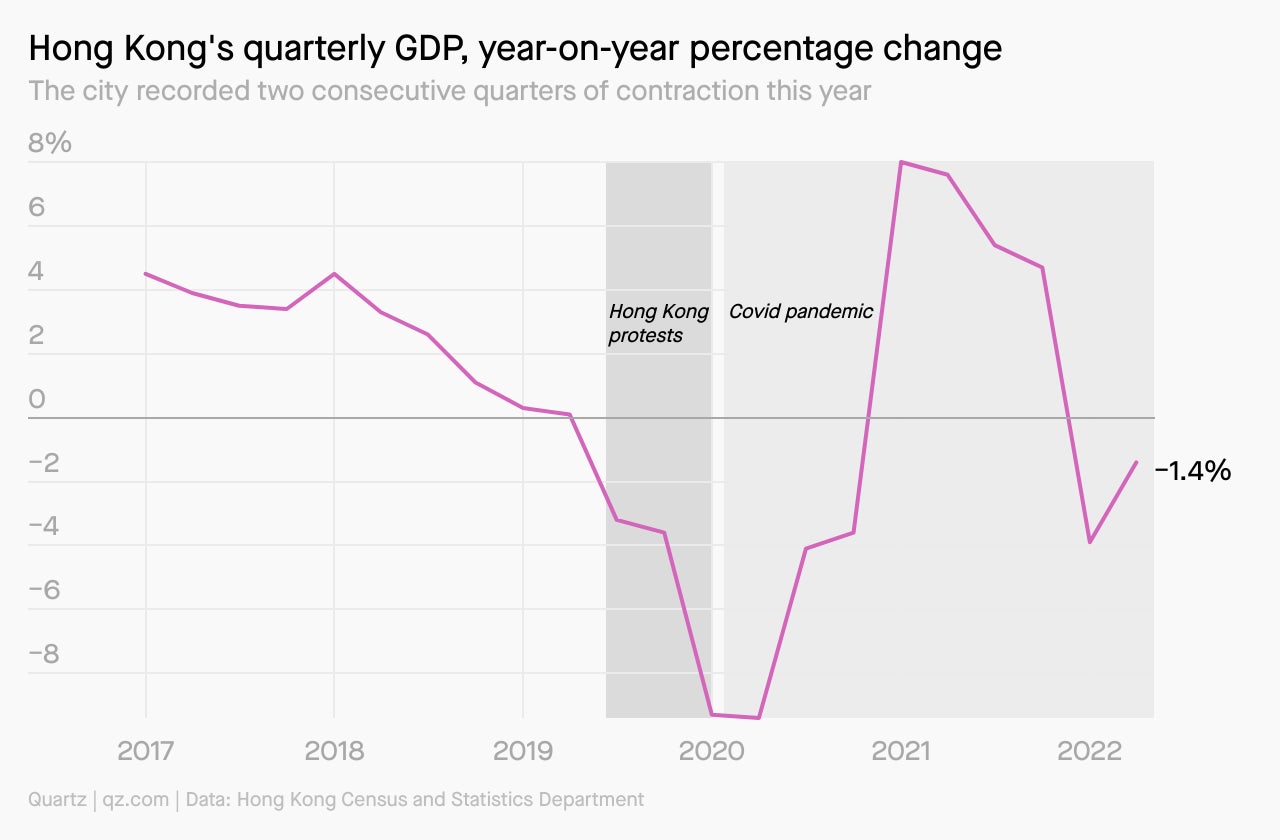Hong Kong’s quarantine relaxation won’t revive its economy
The city, already in a recession, is as cut off from the world as ever

After weeks of rumors and speculation, the Hong Kong government this week finally shortened mandatory hotel quarantines for inbound travellers from seven days to three .
But the city remains as cut-off from the world as ever. Tourists and business travellers are deterred by Hong Kong’s stringent, costly, and often unpredictable quarantine measures.
As a result, Hong Kong’s economy has taken a hit, sliding into a recession last month following two consecutive quarters of negative GDP growth. The outlook is clouded with uncertainty, as zero-covid policies locally and on mainland China continue to weigh on consumer demand and trade.

Hong Kong risks “enduring economic scarring”
The slight easing of quarantine rules “will do little to stimulate the return of tourists and short-term business travellers, who have grown accustomed to the absence of any such restrictions across most jurisdictions,” analysts at the Fitch ratings agency wrote in a note yesterday (Aug. 9).
“We expect Hong Kong’s economy to shrink again this year, the third contraction since 2019, heightening the risks of enduring economic scarring,” they added.
Hong Kong faces the added challenge of needing to raise interest rates in line with the US Fed’s tightening, in order to maintain the local currency’s peg with the dollar. Yet it is economic stimulus that the city needs right now, not cooling.
Hong Kong finds itself in a sort of purgatory between China’s “zero covid” approach and a desire to move away from stringent pandemic restrictions, not least because the city is determined to maintain its role as a premier international finance hub.
“As far as I can tell we are looking at measures used by ‘Zero Covid’ locations and ‘living with COVID’ locations and picking some parts and concepts from each,” Benjamin Cowling, chair professor of epidemiology at the University of Hong Kong, wrote in a tweet this week. “Explanation of policies tends more towards the former, while the actual aim tends more towards the latter.”
The difficult balancing act between the two pandemic approaches sometimes results in illogical policies. For example, there continues to be a ban on public gatherings of groups larger than four–even if they are fully masked, regardless of whether they’re meeting indoors or outdoors–but diners can eat together in tables of eight and banquets can host up to 120 people.
Though Hong Kong’s shortened quarantine may be a welcome carrot, it also comes with a stick: mainland China-style health codes, which will be used to temporarily restrict the movement of new arrivals following their quarantine. The technology is yet another tool enhancing the government’s ability to track citizens’ whereabouts, and also opens up the potential for abuse.
Hong Kong is in for more economic gloom, with an added dose of heightened state surveillance.
This post has been updated to clarify the latest mandated length of quarantine.